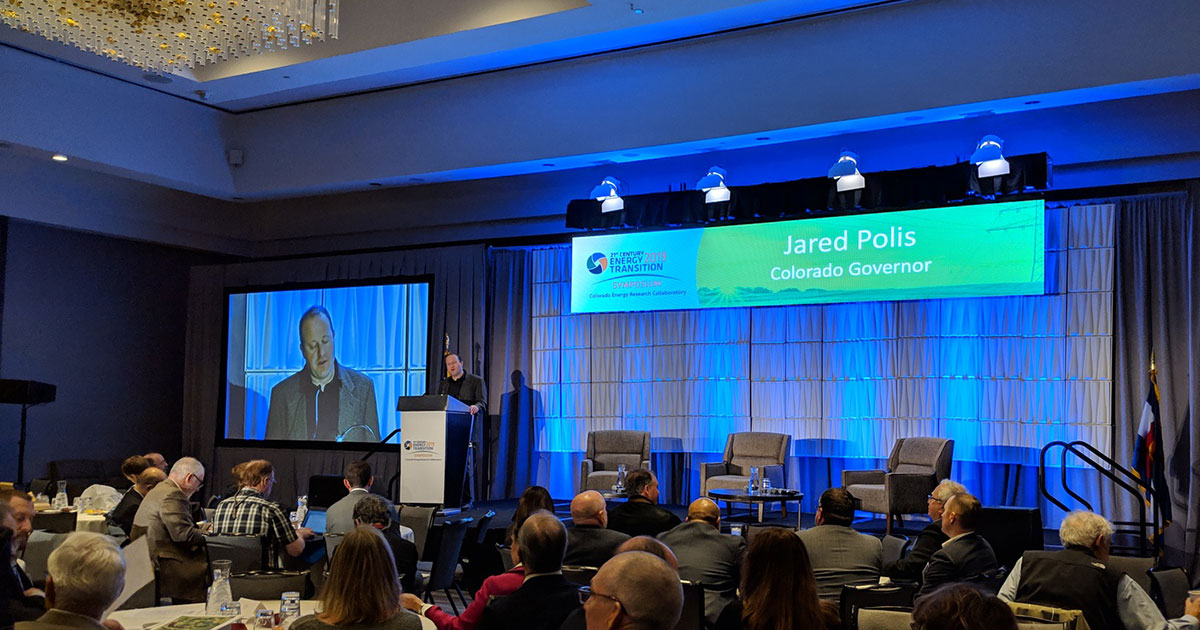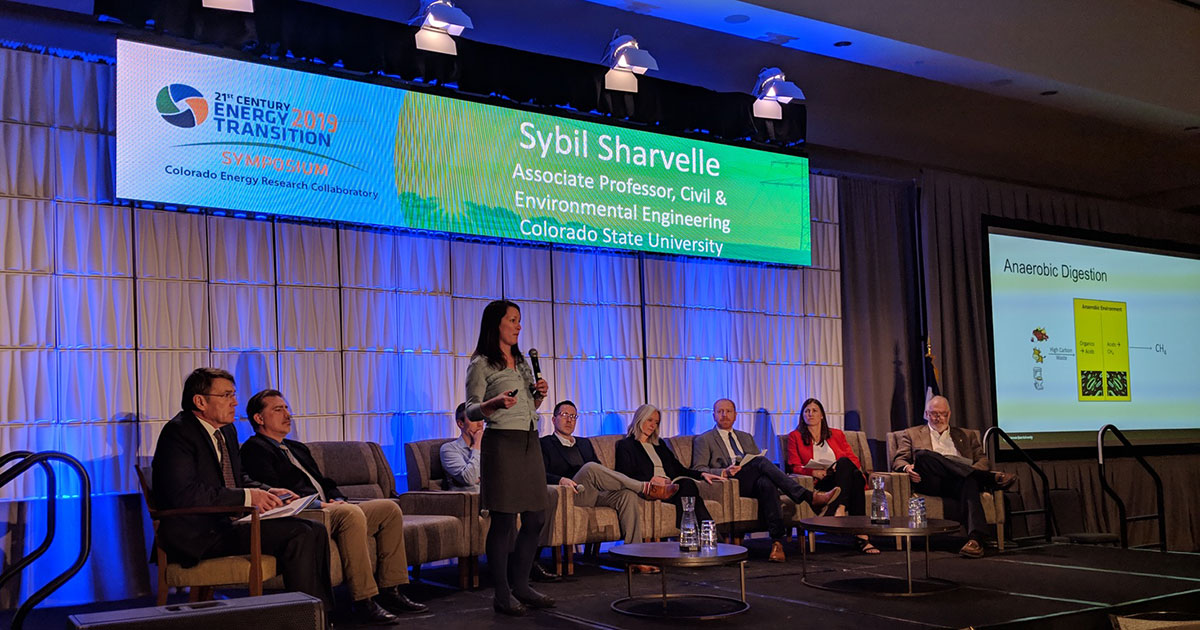Highlights from the 21st Century Energy Transition Symposium, April 1-2. Video by Shelby Condit/CSU Energy Institute
The 21st Century Energy Transition Symposium once again illustrated the complexity of the changing energy landscape, which requires a harmonious balance of science, policy and economics to succeed.
The eighth annual symposium, held April 1-2 in Denver, offered its 437 attendees a jam-packed two days. The event was co-hosted by the Colorado Energy Research Collaboratory and the Energy Institute at Colorado State University, along with partner institutions University of Colorado Boulder, Colorado School of Mines and the National Renewable Energy Laboratory. Seventy-two speakers from academia, government and industry covered carbon capture and storage research; the government’s role in driving energy innovation; the food-energy-water nexus; and much more.
Distinguished guests
Among the symposium’s most distinguished guests was Colorado Gov. Jared Polis, who summarized his office’s clean-energy agenda.
“The transition to renewable energy is one of my top priorities as governor,” Polis said. “Not only is it about the moral imperative to fight climate change, it’s about saving money on health care by reducing pollution. It’s about an economic imperative to make sure we harness the economic opportunities that emerge from the transition to renewable energy.”
Immediately afterward, Betsy Markey, executive director of the Colorado Office of Economic Development and International Trade, and Colorado State Rep. Chris Hansen, participated in a lively question-and-answer session moderated by symposium co-founder Bill Ritter, the 41st governor of Colorado. They addressed specific steps being taken to position Colorado as a renewable energy leader. Hansen highlighted several legislative initiatives, including a bill to allow expanded community solar gardens.
“We’ve got a massive shift happening in the utility sector,” Hansen said. “For us to wait and react is simply not an option.”
Markey’s office has looked at, for example, recalibrating incentive programs for companies to reduce driving by encouraging remote work, as well as retraining coal workers for jobs in emerging industries.
The Day 1 evening keynote was delivered by Alice Jackson, president of Xcel Energy-Colorado, who described her company’s efforts to lead the clean energy transition “reliably and affordably.” Xcel has committed to an 80 percent reduction in carbon emissions by 2030 and 100 percent by 2050 – “a very bold goal” for any utility, Jackson said.
Decarbonization solutions
The economics and policies needed to remove roadblocks toward clean energy cannot happen without new, innovative technologies, examples of which were presented in two lightning-round panels. Sixteen scientists took five minutes each to describe their specific contributions to decarbonization. Among them was Sybil Sharvelle from the CSU Department of Civil and Environmental Engineering, whose lab works on generating fuel products from organic waste materials. Another was Kurt Barth, head of the CSU Center for Next Generation Photovoltaics, who described his center’s major strides in increasing efficiency and cost-effectiveness of solar.
Symposium chair Maury Dobbie, executive director of hosting organization the Collaboratory, extolled the symposium’s ever-present mission to provide nonpartisan, fact-based civil discourse. Started in 2011 as the Natural Gas Symposium, the event was rebranded in 2016 as the Energy Transition Symposium to encompass broader perspectives beyond oil and gas industry issues.
“We will continue that conversation about what the energy transition in the West, and in America, looks like going forward,” Ritter said in a video played during the event.

Gov. Jared Polis addresses the 21st Century Energy Transition Symposium, held at the Denver Grand Hyatt April 1-2.

Sybil Sharvelle, associate professor in the CSU Department of Civil and Environmental Engineering, participated in a lightning-found panel with 15 other researchers describing their specific contributions to decarbonization solutions.
Played during the symposium, this video features former Colorado Gov. Bill Ritter discussing the symposium’s history, and where it’s going. Video by Shelby Condit/CSU Energy Institute